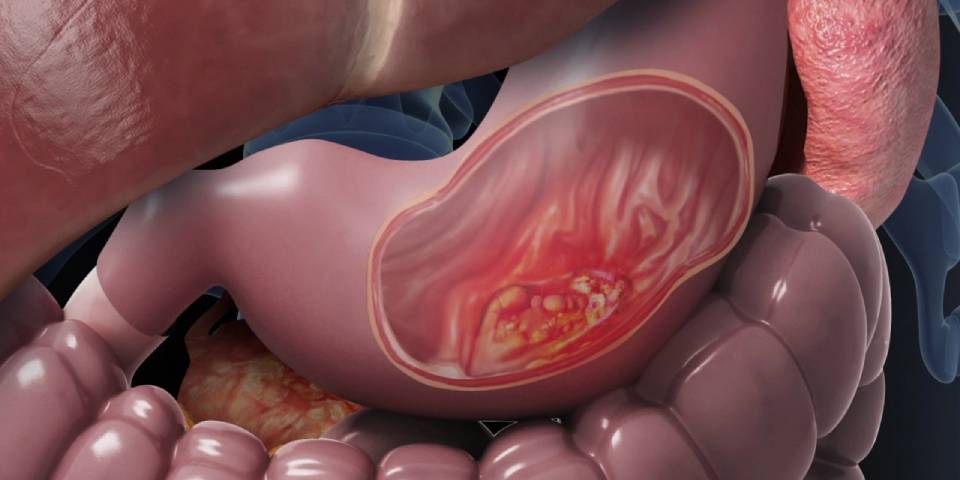
What is GI Cancer (Stomach Cancer)?
With GI cancer is also called gastric cancer or stomach cancer. Cancer cells grow out of control in your stomach. Cancer can form anywhere in your stomach. Most cases of stomach cancer involve abnormal cell growth in the place where your stomach meets your esophagus (gastroesophageal junction) and in the main part of your stomach.
About 95% of the time, stomach cancer starts in your stomach lining and progresses slowly. Untreated, it can form a mass (tumor) and grow deeper into your stomach walls. The tumor may spread to nearby organs like your liver and pancreas.
Who does stomach cancer affect?
Anyone can develop stomach cancer, but certain demographic factors may increase your risk. You’re more likely to get stomach cancer if:
- You’re 65 or over.
- You were assigned male at birth.
- Your ethnic background is East Asian, South or Central American, or Eastern European.
Symptoms of stomach cancer:
- Loss of appetite.
- Trouble swallowing.
- Fatigue or weakness.
- Nausea and vomiting.
- Unexplained weight loss.
- Heartburn and indigestion.
- Black stool (poop) or vomiting blood.
- Feeling bloated or gassy after eating.
- Stomach pain, often above your belly button.
- Feeling full even after eating a small meal or snack.
Many of these symptoms are common in other conditions, too. Visit Dr. Bhushan Chittawadgi to check if your symptoms are a sign of stomach cancer or another disease
Causes Of Stomach Cancer:
- Family history of stomach cancer.
- Helicobacter pylori (H. pylori) infection.
- Gastroesophageal reflux disease (GERD).
- Gastritis.
- Epstein-Barr virus infection.
- History of stomach ulcers or stomach polyps.
- A diet high in fatty, salty, smoked, or pickled foods.
- A diet that doesn’t include many fruits and vegetables.
- Frequent exposure to substances like coal, metal, and rubber.
- Smoking, vaping, or chewing tobacco.
- Drinking too much alcohol.
- Obesity.
- Autoimmune atrophic gastritis.
Treatment of Stomach Cancer:
Surgery:
Depending on how much cancer’s spread, your provider may recommend surgery to remove precancerous cells, a tumor, or all or part of your stomach.
- Upper endoscopy: In the early stages, when the cancer is limited to your stomach’s superficial (uppermost) layers, cancer can be removed through an upper endoscopy. In this procedure (endoscopic submucosal dissection or endoscopic mucosal resection), a gastroenterologist cuts the tumor from your stomach wall and removes it through your mouth.
- Gastrectomy. Once the tumor spreads beyond your stomach’s superficial layers, you’ll need surgery to remove all or part of your stomach. Subtotal gastrectomy removes the part of your stomach affected by cancer. Total gastrectomy removes your entire stomach. Your provider will connect your esophagus to your small intestine so that you can still eat following total gastrectomy.
Other treatments:
Additional treatments attack cancer cells directly.
- Chemotherapy (chemo) uses drugs to shrink cancer cells, making them easier to remove before surgery. Chemotherapy can also kill the remaining cancer cells after surgery. It’s usually used in combination with radiation. Chemo may be used with targeted drug therapy, too.
- Radiation uses targeted energy beams like X-rays to destroy cancer cells. Radiation alone isn’t effective in treating stomach cancer, but it may be used alongside chemo before and after surgery. Radiation can also help relieve symptoms.
- Targeted drug therapy zeroes in on weaknesses in cancer cells, causing them to die. It’s often used with chemo in cancer that recurs (comes back) or that’s advanced.
- Immunotherapy helps your immune system identify and destroy cancer cells that may be hard to detect. It’s most commonly used in recurring or advanced cancer.
- Palliative care helps improve your quality of life as someone with a cancer diagnosis. Palliative care is specialized medical care that may include doctors, nurses, and other specialists who can help with symptom relief. They can also provide additional support that complements the care you receive from your regular providers. You can receive palliative care alongside other treatments.
Talk To Dr. Bhushan Chittawadgi:
Dr. Bhushan Chittawadgi is a consultant and an Advanced Laparoscopic, Gastro, and GI Cancer Surgeon practicing at Hosmat Hospital, Bangalore, Karnataka. He has more than 18 years of experience in the field of Laparoscopic GI & HPB Surgery making him one of the best laparoscopic surgeons in Bengaluru, Karnataka. He is specialized in Laparoscopic hernia surgery, Gall bladder stone, Obesity, liver and pancreas diseases, GI surgery, Piles, and Breast & Thyroid diseases



